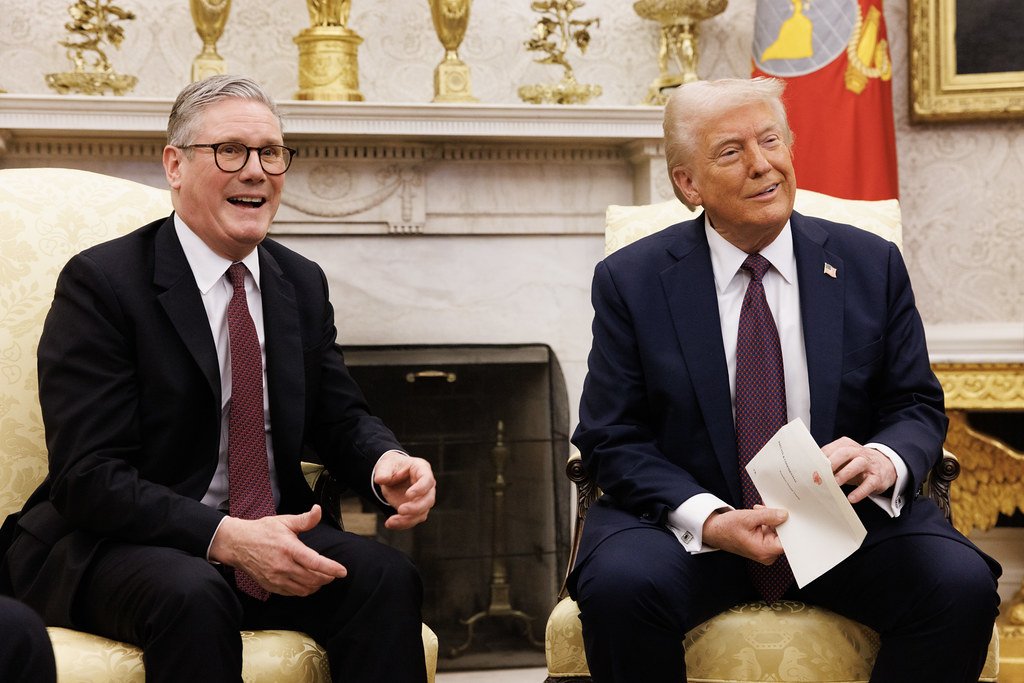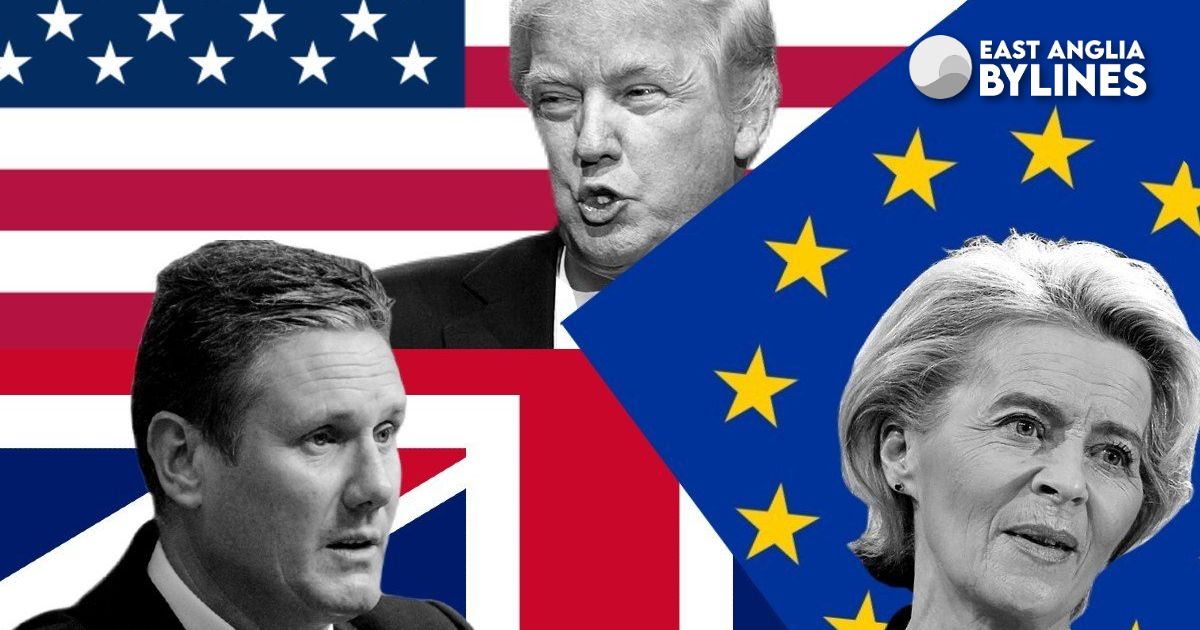Prime Minister Starmer has been enjoying something of a phony war up to now on Europe. There’s been lots of rhetoric, especially online and in the press. Positions have been staked out by the UK government. Slogans have become mantras. But in all this time he has not actually having to get his hands dirty with proper decisions of state. Suddenly though the rubber is about to hit the road.
This has often been the case with the staccato progress of Brexit. There’s a situation that everyone knows has to come to a head in a decision, followed by a lull in activity but a lot of chatter, before finally an unorgasmic spaff as a decision is made, consequences are spread everywhere, and the UK enters a new phase.
Brexit’s stop-start chaos: a familiar pattern
So we had the phony war between the referendum and the Article 50 invocation, where nobody knew what Brexit meant; again between the Article 50 letter and the meaningful votes, where Prime Minister May’s efforts to reconcile swivel-eyed loons with the reality of being a third country met cold parliamentary arithmetic; and then again from May’s abdication to Boris Johnson’s meeting with Taoiseach Leo Varadkar and opting for a relationship between Britain and Northern Ireland that set up the new relationship with Europe.
Here we are again. Following an election campaign and ten months since of the government talking about a reset with Europe, and the rest of us parsing every phrase, down to the etymology of “reset”, it is decision time. How will the UK actually commit to Europe?
With that in mind, why are the Chancellor and other ministers shuttling off to America? Why has the talk been more, in recent days about a controversial trade deal with the US, given the upcoming summit with Europe, so pregnant with possibility for Labour? And given how difficult Trumpology is these days, should the government really be putting so much store in these talks?
The government plays a dangerous game Image by Number 10 via Flickr (CC BY-NC-ND 2.0)
Image by Number 10 via Flickr (CC BY-NC-ND 2.0)
The first thing to say, the government has agency. So let’s not be naïve about its actions. It is using Washington as a hedge against and/or leverage over Europe. Essentially, it’s behaving like a footballer talking up interest from Barcelona during a contract negotiation. It wants to create the impression that it has options. The UK can walk away. And thus it can either force Europe to get what it wants. Or if talks fail with Europe it can fall back on the chlorine-washed-chicken deal.
This is a real pity. There is very likely going to be a deal, as regular Brussels-watchers and insiders will tell you. Aside from defence, it won’t be transformative. So it is disappointing and a little bit 19th century negotiating to be trying to leverage better terms by talking to what are ultimately fundamental Europhobes in Washington. It would be far better to approach Europe with open hands and see what can be done together.
There’s also the bad-at-politics aspect from Starmer again.
If you begin talks with the US and have substantive things on the table, you open the door a crack. To hell. You invite the vampire in.
The fallout from failing to deliver Brexit’s prize
It seems probable that the government will not get a deal from the US – the political cost appears too high, and the asks go against some Labour fundamentals. When that happens, the demons of the far right and the press will pour out of the door the negotiations left ajar. They will burn Starmer. He will be blamed for failing to take home the golden fleece of a US trade deal (even if in substance it was never going to be actual free trade). He will be excoriated for denying Brexit its destiny. He will never be rid of the vampire.
Added to which, is it really leverage when Brussels and member states don’t believe Starmer would sign a US deal that would damage trade with Europe anyhow?
Nothing meaningful is going to come from talks with Washington, and it would be good for the UK government to acknowledge that and engage on the surface. From the US perspective, there is a desire to disrupt Euro-UK relations. But the US administration wants to nakedly humiliate the UK and European member states. The US administration believes in domination and its actions – towards Canada, Mexico, Denmark, Ukraine, the Baltic States, and, yes, the UK show that. Many in Europe would like London to call that out. (I’m well aware of the irony of a British government criticising others for wanting to dominate countries by force.)
Choosing Europe over illusions
The government should instead say to Europe, we believe in equality, in fraternity, and we want an alliance on those terms. We’re on your team. Not America’s. Not Russia’s. Let’s work on a new relationship in that spirit.
As to the new relationship itself, this is a new paradigm. Direct effect, following justiciable European law, with court oversight, allows so much more down the line. So let’s at least celebrate the symbolism of that, even if sanitary and phytosanitary standards themselves won’t do too much for our economies.
But so much more could be done. The fight for that is now, as decision-time is coming. It is still hard to explain why so many pro-Europeans in the UK have bought into the sacral quality of the May-Johnson redlines. They should instead be agitating for a relationship that expressly breaks those redlines and looks actively at what Europe might want.
More from East Anglia Bylines
CLICK HERE TO DONATE TO OUR CROWDFUNDER
HELP US BECOME STRONGER SO THAT WE CAN CONTINUE TO DELIVER POWERFUL CITIZEN JOURNALISM!

